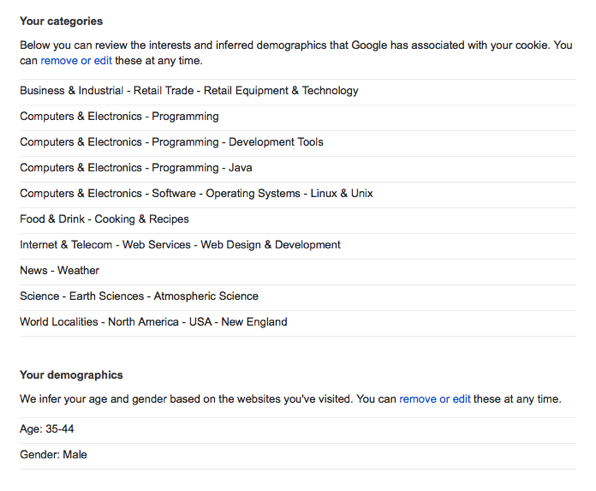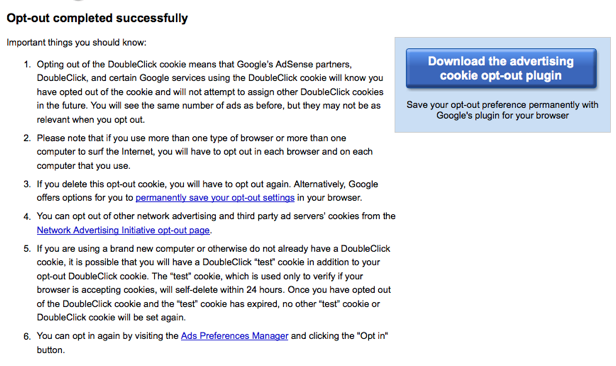I was talking with a friend the other day who mentioned that he was surprised that he was seeing advertisements from a particular company on completely unrelated websites. The company in question was one he had an interest in, and had visited the website of, but he hadn’t signed up for anything, and he wondered how it was that he was seemingly being targetted in this way.
The answer: network advertising. These days almost every commercial website you visit will be running ads, and the networks that deliver those ads into your browser are not only in the advertising delivery business, but also in the “hey, he visits the New York Times website so he must be a middle-income professional between 46 and 62” business. And they use, and sell, this aggregate information about you to other advertisers to turn around and display advertising to you that they infer will be “interesting” to you.
For example, Google has a page where you can display and alter the kind of advertising you see on the web from its advertising network. Mine looks like this:

I’ve assumed all along that Google, and the myriad other advertising networks have been doing this kind of thing, I applaud Google’s transparency about it, and, indeed, I derive some of my income, indirectly, from my clients’ web advertising and the better-performing it is the better it is for me. But I still find the inference of my age, gender and interests from my web searchs to be deeply, deeply creepy.
It is possible to opt out of this custom-tailoring of advertising For Google, you need to click on the “remove or edit” link on the page above and then click the “Opt Out” button, at which point you see a confirmation page like this:

At this point it’s possible to go two steps further: first, you can install the Cookie Opt-Out Plugin and, second, you can visit the Network Advertising Initiative’s Opt Out of Behavioral Advertising page. Upping the creepiness factor, or at least the “wow, I’m being profiled a lot” factor, almost every one of the ad networks on the list of ad network I found there.
The matter here that I find worthy of discussion is why this is all positioned as a opt-out initiative when, for example, the email marketing world has moved, in general, to an opt-in (and often a double opt-in) model. Why is the assumption that we want to be behaviourly marketed to?
 I am
I am
Comments
Hilariously enough, Google
Hilariously enough, Google thinks I'm 65+.
I find that Amazon's
I find that Amazon's suggested preferences for me are wildly off too. No, no I wouldn't like Eat, Pray, Love…. Actually, I think I would deeply hate Eat, Pray, Love. Screw you, I'd rather claw my own eyes out than buy that book on Hot Yoga. ARrrrrgh. It's like the stupidly helpful computers in the Hitchhiker's Guide to the Galaxy.
Weird.Google is spot-on for
Weird.
Google is spot-on for me. A bit creepy. But in the long run, I'd rather see ads that pertain to my interests, rather than the alternative.
Add new comment